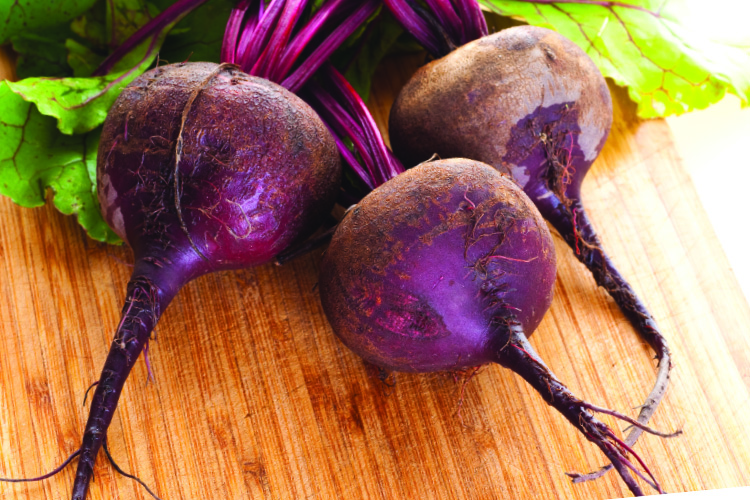Turnip
Turnips are thought to have originated in North Europe around 2,000 BC and were one of the first vegetables to have been cultivated. They were a very important food for the Romans and a staple across Europe before the potato. Turnips (Brassica rapa rapa) are root vegetables that have less than a quarter of the carbohydrate of potatoes, and so are great choices for people who follow a low-carb diet. Turnips are members of the same plant family as cabbages, kale, broccoli, and cauliflower. The leaves of the turnip are also edible and are eaten as turnip greens
- Turnips are a great source of calcium and potassium, essential minerals for healthy bone growth and helping to prevent bone diseases such as osteoporosis
- Turnips offer a wide array of antioxidant support, including vitamin C, vitamin A, vitamin E, manganese and beta-carotene. While the roots are a great source of vitamin C, the leaf greens are chock- full of all of these antioxidants
- Turnip greens are high in fibre which helps support the body’s digestive system. Some research suggests that glucosinolates may also help the stomach process bacteria like Helicobacter pylori
- A very rich source of calcium, phosphor, folic acid and magnesium, essential for all-round development of the human body
- They may also help the body lower cholesterol and contain excellent amounts of folate, a B-vitamin that is critical to cardiovascular health, and an important nutritional element for pregnant women
- Any low calorie, nutrient rich foods like turnips can be a great addition to an effective weight loss program. The high fibre content of turnips should promote an active, healthy metabolism as well
- Turnips are cruciferous vegetables. They contain high levels of antioxidants and phytonutrients associated with reduced risk of cancer. Research shows that plant compounds like glucosinolates help the liver process toxins, fight the effects of carcinogens and may even inhibit the growth of tumours
- Turnip greens are great sources of two excellent anti-inflammatory agents: vitamin K and omega-3 fatty acids. Vitamin K is a potent regulator of the body’s inflammatory response system. While Omega-3 fatty acids are essential building blocks of the body’s inflammation system and help reduce the risk of heart disease, arthritis and other disease that may be the result of chronic inflammation
- Turnip is high in fibre which helps regulate the metabolism, controls body weight and supports a healthy, active colon
- Large amount of lutein in Turnip helps to prevent cataracts and cardiovascular diseases
- Turnip has great anti-inflammatory properties, which are considered key in preventing heart attacks and heart disease
















